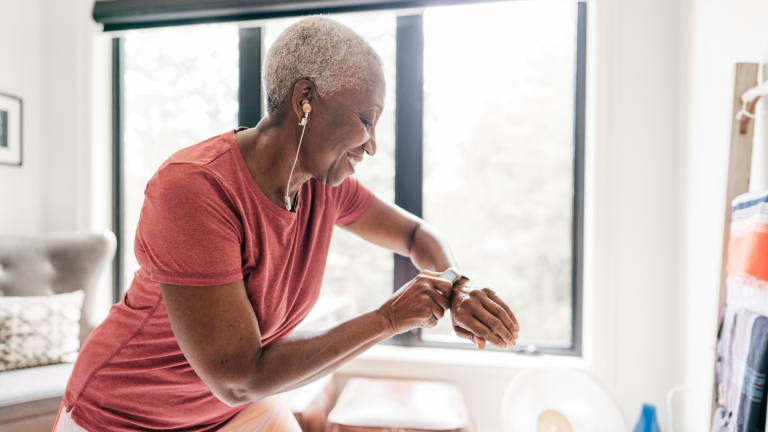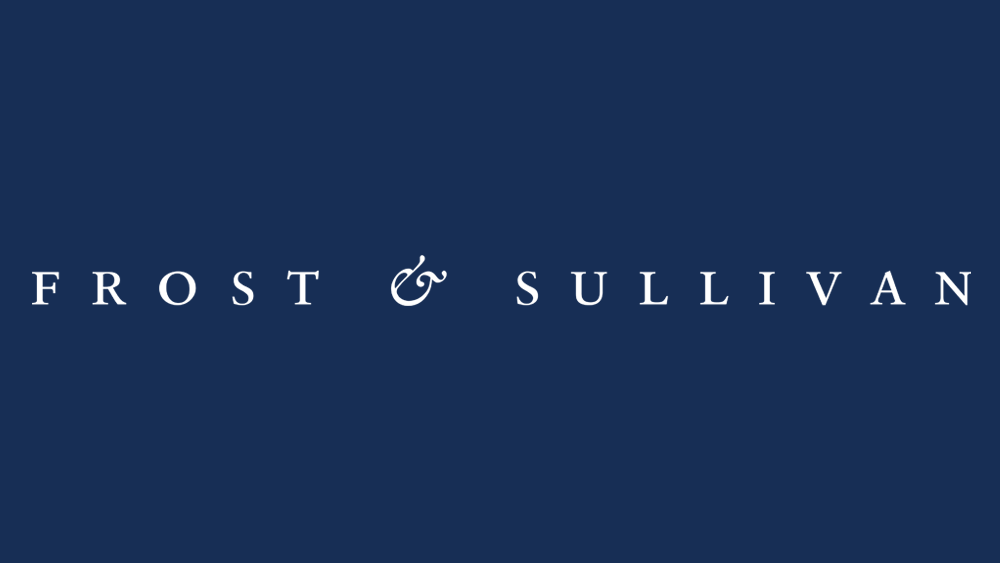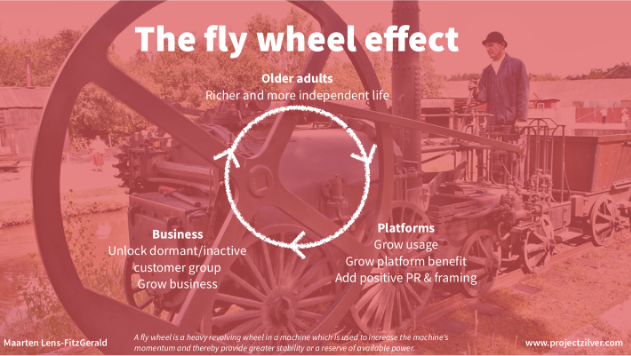
Voice AI Design – No Older Adult Left Behind
The perspective that people 50 years’ old and older are all just one monolithic group is a mistake for business, for product design, and for successful voice experiences.
Products
Our Platform
SoundHound’s independent voice AI platform is built for more natural conversation.
Solutions
For Every Industry
Find a customizable and scalable voice AI solution for your industry or use case.
Resources
Get the latest voice AI news, keep up on trends, get expert advice, and discover new solutions.
Our Company

Frost & Sullivan Names SoundHound AI a Leader for Enterprise Conversational AI in Healthcare 2024


By Maarten Lens-FitzGerald
As providers of voice-enabled devices, it’s easy to focus on the young professionals, the digital natives, the millennials, and Gen Z. But, what if voice AI can serve a higher purpose — make lives safer and less lonely while enabling greater independence for older adults too? This is the question I asked myself when I formed Project Zilver, a consortium of organizations dedicated to improving the lives of older adults through voice technology. To get the answers, we conducted some research among the population we are seeking to serve.
While some of our findings are not all that surprising — that older adults are more comfortable using their voices instead of swiping and typing on screens that aren’t that forgiving to failing eyesights and arthritic joints — other statistics were more eye-opening. For instance, we found that 69% of the 3,450 respondents of our survey already use smart tech in their homes and 22% of those same people already control some devices by voice.
Project Zilver, a non-profit organization based in Holland, is focused solely on making people’s lives better. During Project Voice 2020, I spoke about the project, the research, and the future of voice AI for older adults. You can watch my presentation in its entirety here.
As mentioned above, we conducted an extensive online study and then invited 14 older adults to come in for some focus group research. As a result, we surfaced 6 key elements to making voice-enabled devices more accessible and useful to people over the age of 65.
Top 6 elements of voice assistant accessibility for the older generations:
Beyond the conveniences and entertainment value of voice-enabled devices, we saw a need to provide older adults a way to alert someone when they needed help. Early on in this endeavor, I looked up the statistics and found that every 19 minutes an older adult falls and that every year 27,000 deaths in the U.S. are the result of older people falling.
How do you refer to people over 55? Elderly? Seniors? In a conversation with Heidi Culbertson, CEO of Marvee, she emphasized the importance of how we talk about people who are past middle age. If you’re over 40 and you’re starting to get gray hair, you may already feel the effects of ageism. If you haven’t yet, you will — because we all get older. Once people start making decisions about your abilities, stop taking you seriously, and want to hire or associate with somebody who is younger, more fit or whatever they perceive about older adults, you will begin to know what it is like to move through life and suddenly hit a roadblock.
The idea behind Project Zilver is that voice brings everybody back into the game because it’s a democratization of technology. Almost anyone can acquire a smart speaker — they’re fairly inexpensive and they have a lot of potential to provide the type of support that mature adults are seeking. I think that’s really clear.
The first thing we needed to get our project off the ground was some research to prove that older adults actually want voice technology and that they will use a voice assistant in their homes. We found that older adults are looking for ways to stay in contact and to sustain independence for as long as possible. Many of our study participants found those two things to be a major draw to having a voice assistant.
“I want a voice assistant because I want to be independent for as long as possible,” – Project Participant
The study results laid the foundation to really get the consortium moving forward. Our next step was to get a group of mature adults in a room and to give them a smart speaker. During that session, we helped them install the speaker and explained the requirements of the study.
Other than that, we didn’t provide any guidance. For the next two weeks, we asked the participants to use the speakers and record their experiences in a diary. At the end of two weeks, we conducted open interviews.
Here are a few findings from our study:
Based on what we’ve discovered so far, we see that although we have a foundation for what we are trying to achieve, we also see room for improvement. For instance, speech understanding needs to get better, and of course our users want the assistant to talk slower and don’t want to have to repeat the activation word multiple times.
One thing we discovered is that packaging can make a big difference for older adults. Making the product accessible is hugely important for people who may not have the dexterity in their hands that they once had. On a lighter side, we found that mature adults were concerned about the waste of too much packaging or the concept of destroying something in order to unwrap the device inside.
“Whoa, the packaging is so beautiful, Do you really want me to break it?”
– Project Participant
What we realized was that the people who would benefit most from having a voice assistant will have the hardest time setting up a device. It became clear that the onboarding — basically the beginning of the user journey — was going to be a major focus of our work. Simply opening the box was not very intuitive.
An important observation was that the participants wanted to be allowed to help each other. We noted that some members of the group were already doing that kind of work in their daily lives. One 71-year-old woman provides computer training for her peers.
Although members of the older generation like independence and want to remain in their current living situations, they are often alone. Having a voice assistant there to greet them and to hear a voice was a benefit to many of our project participants. They liked being able to say, “Good Morning” and hear something back. It’s uplifting to make that connection. In addition, many of our participants felt just a little safer having a device that could reach the outside world when they needed care.
“Google Home has changed my life, I have a bigger sense of security being able to call my children when I fall,”
– 81-year-old Project Zilver study respondent
When I heard this comment from an older gentleman about his increased feelings of security since having the voice assistant, it confirmed for me the work we are doing, our reason for being, and our purpose.
Once we transcribed the diaries, we discovered that older adults aren’t necessarily ego-centric when they are looking at the possibilities of something like a voice assistant. Many recorded reactions in their diaries that reflected thoughtfulness about groups and the benefits of technology for others. Overwhelmingly, we heard comments about convenience. That was the biggest driver. Based on their comments, we were able to conclude that older adults are wanting to voice-enable all their devices — lights, TVs, and appliances.
Part of our mission is to identify the features that will better address the needs of this unique audience. As with all generations, our project participants wanted access to entertainment. They want to hear whatever they like and what they remember. But there was some confusion about what they might be charged for and what is a free service. We realized that we need to find a way to clearly communicate what they are getting, and what apps may cost them more money to download.
To help businesses understand the opportunities associated with marketing their products and devices to the rapidly growing older generations, we’re creating useful playbooks. Business leaders and developers of voice assistants can use our playbooks to understand some of the key factors of addressing the “Zilver” market — such as slower speech, more pauses in speech and voice recognition that doesn’t require clear, concise speech by the user.
For example, we’re currently, we’re working with an insurance company to create an emergency service where an individual designates a neighbor or a close relative who then gets a call in the event of an emergency.
Although we only started this a little over a year ago, we have already gotten a lot of attention. I call this the flywheel effect. As you can see, the momentum from one element of this movement helps to drive a forward motion for the next. The net effect is that the entire system gains greater stability and power.

Having a stated purpose of trying to make people’s lives better helps keep the momentum going. In addition, everyone carries their own costs, but there’s more to it than that. For example, how we fit into the constellation of the industry. On one hand, companies that work with us get the benefits of positive public relations. They’re able to say that they are working with a consortium dedicated to improving lives. On the other hand, there’s the business aspect. A voice AI platform provider has the opportunity to grow usage and expand its customer base. Service providers, such as an insurance company can get more customers or provide better service to their existing customer base. Most importantly, we provide older adults with richer and more independent lives through voice AI.
Now that we have identified a need and confirmed that older adults are not only willing, but anxious, to use voice-enabled devices, our mission is to get organizations moving toward achieving the 6 key elements we’ve identified.
This year, Google and the Dutch AARP are starting a content marketing campaign to talk about the smart home and voice assistants. In addition, the local Amazon subsidiary — called BOL in Holland — will have a special store with discounts for older adults. Most importantly, the 14 people from our focus group will also start some peer support groups. We’ve already started this in Denmark where the people at AARP are learning to support older adults with smart speakers.
Secondly, we are promoting more access for mature adults through a project with the banking industry in Holland to create a voice service for getting pension information.
What’s most important is what’s next. We’re a consortium and we want people to join us and start working on making lives better with voice services. To date, most of our efforts have been focused on the aging population in Holland, but Project Zilver was really designed to be a global effort. We’re hoping that U.S. organizations will soon join our consortium to raise awareness and provide better lives for mature citizens everywhere.
For more information, download the official Project Zilver research report.

Maarten Lens-FitzGerald, Founder of Project Zilver, Voice evangelist and conversational channel consultant. www.lens-fitzgerald.com
Subscribe today to stay informed and get regular updates from SoundHound Inc.